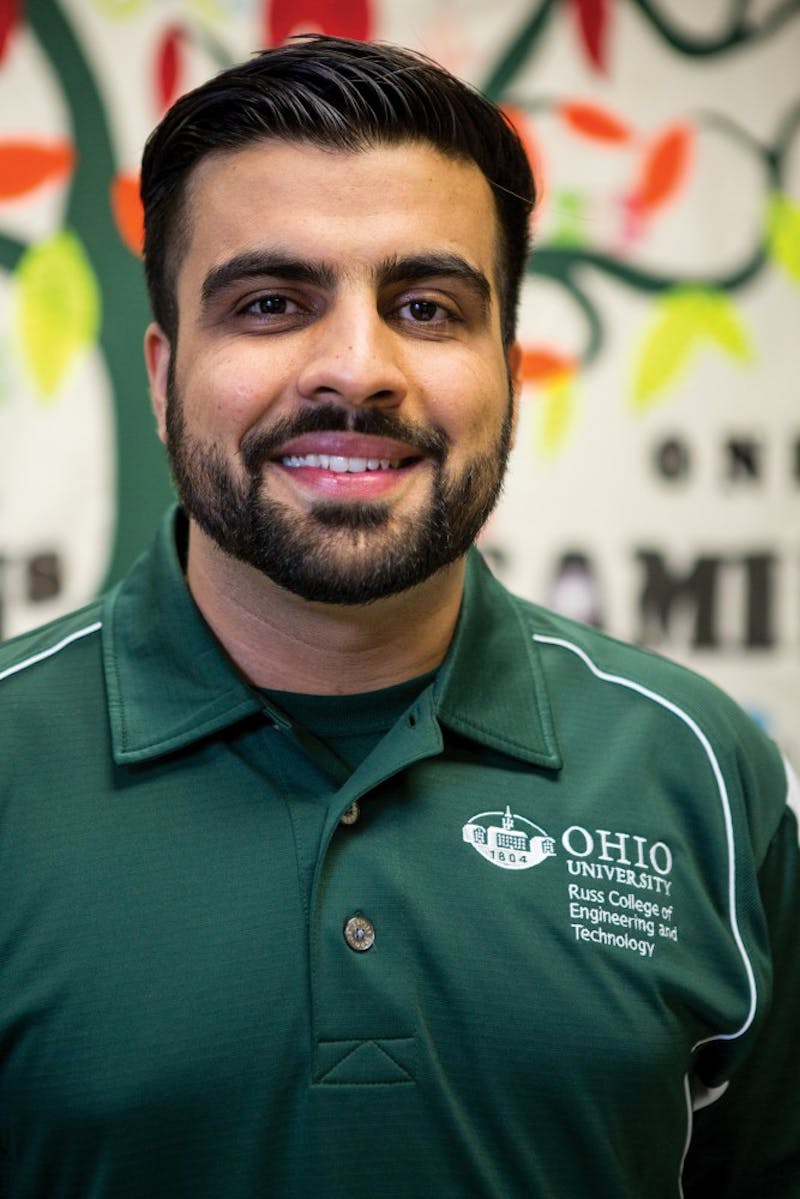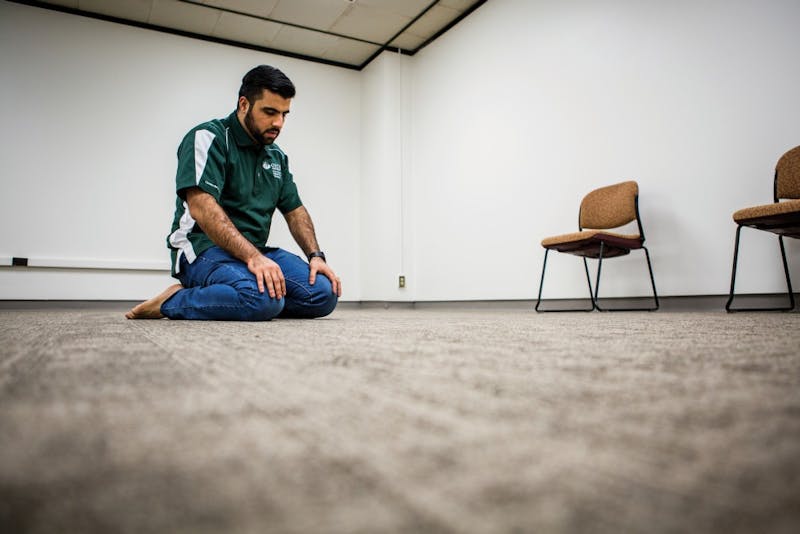

JESS UMBARGER / STAFF WRITER
The Green Mappers, a team of three, aims to create an interactive map for environmental problems in their Scripps College Innovation Challenge.
The challenge they chose was to create a system or idea to increase the Natural Resource Defense Council’s donation rate. The council is a non-profit international environmental advocacy group. The team chose to build an interactive map that targets donor’s interests.
“I feel like their social media platform or the awareness is not as good as it should be,” Hashim Pashtun, a graduate student studying civil engineering, said.
The NRDC has eight different sections, such as oceans, climate and health where people can choose to donate to and smaller projects within the sections.
“We came up wit this idea of mapping those projects in such a way that people who have an app can go and look around for projects and connect accordingly,” Pashtun said.
The map they are creating covers the entire globe, not just Athens. There will be pinpoints all over the world showing different environmental projects. For example, a pinpoint at Flint, Michigan would show the environmental projects in the area to help provide clean water.
The team will use openstreetmap data, a free, open-source map of the world created by volunteers, to make the map, Linsey Edmunds, a first-year graduate student studying environmental studies said.
“The map has everyone you need in one place,” Edmunds said.
Pashtun said the app will only alert people to what they subscribe to and that they can personalize the map to their specific interests.
“People can subscribe to specific projects of (their) interest rather than be bombarded with emails or updates,” Pashtun said. He believes it is important to not send out too many emails because many people find that annoying.
The Scripps College Innovation Challenge is a university-wide competition where students solve real-world issues.
The team has also created a live feed to show how much money is being raised, connect with others and share their stories.
The team chose the NRDC’s challenge because they have backgrounds in environmental concerns. Pashtun himself has been interesting in the environment for more than five years.
Edmund chose to join the challenge because she was encouraged by her professor, Bernhard Debatin. She also chose to join because it was “something new (to her) and something challenging.”
Along with being interested in environmental problems, Edmund said it is important for people to have a place to help the different problems.
“The environment is not a concern for this (current presidential) administration and so people need a place to donate,” Edmund said.
The Innovation Challenge is not the only thing Pashtun has been a part of. He was also involved in the Meditation Room on the fifth floor of Alden Library. The room has no signs or symbols of any religions to keep it a neutral space. It is also a place where people can relax and reflect, Pashun said.

“As a practicing Muslim, it was hard to find a good place to pray,” Pashtun said. “There was no certain place.”
Pashtun has also helped introduce a zero-waste initiative within the International Student Union. At the international dinner, there was only compostable plates and utensils as well as paperless advertising. The effort saved ISU between 500 and 1000 dollars by going paperless for the event.
Edmund believes the challenge is an opportunity to work with others who are involved with different parts of the university.
“You don’t have to have a great idea when you start it just kind of evolves,” Edmund said.
Photos by : Patrick Connolly / Multimedia Editor
Developed by: Seth Archer / Digital Managing Editor